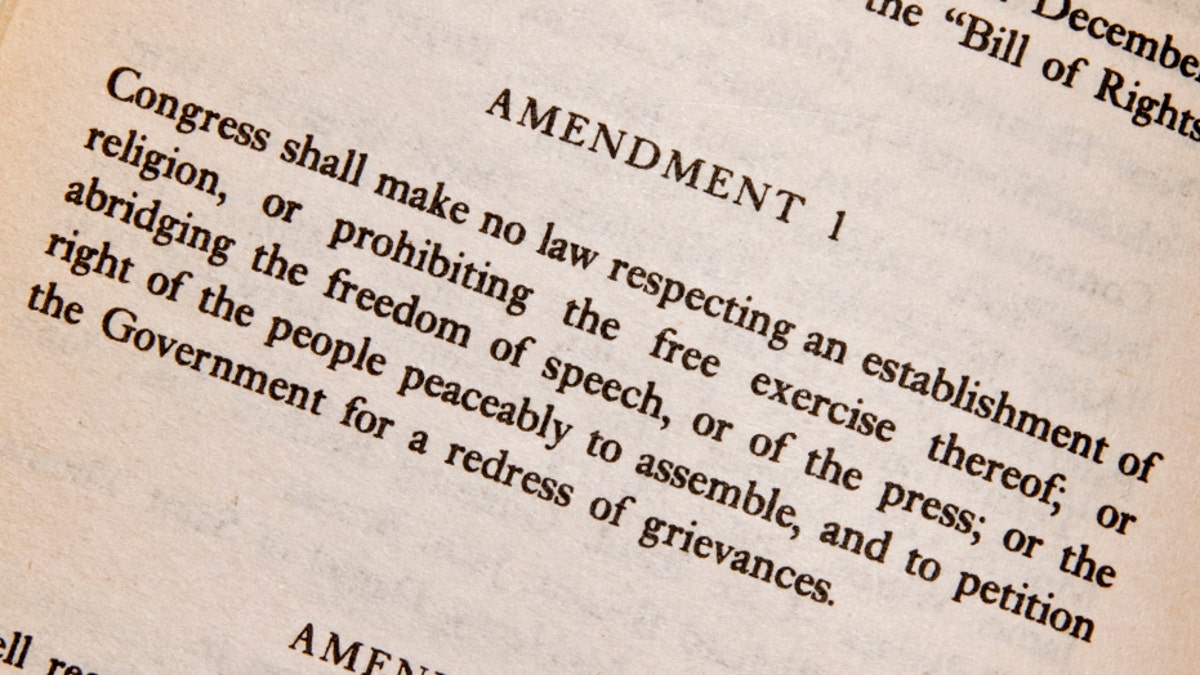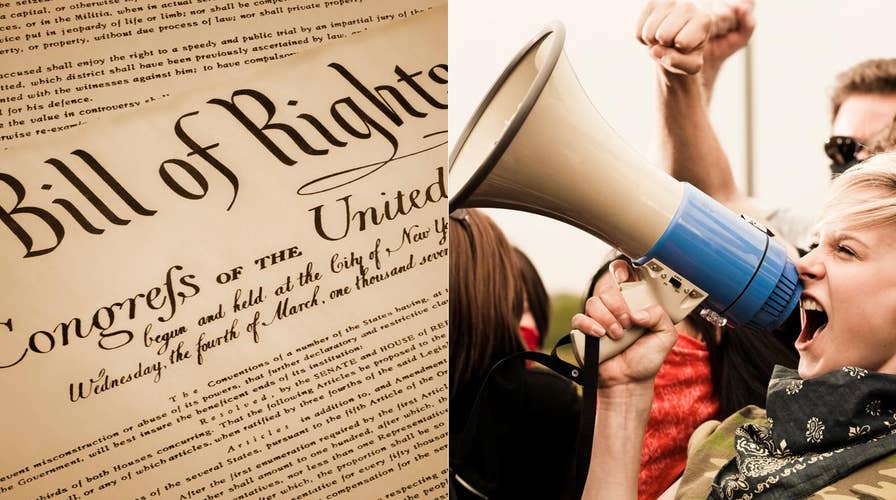What exactly is protected under the First Amendment?
Confused by what you can and can’t say under the First Amendment? Well, Fox News has got you covered
The First Amendment is a crucial element within the Bill of Rights not only because it guarantees the freedom of dissent but is uniquely American. Not many countries outside the United States make freedom of speech a fundamental right for all citizens.
However, over the last few decades, the scope of the First Amendment has changed as the rise of digital media has expanded the definition of the public square. The First Amendment prohibits the government from making laws that infringe on an individual's freedom of speech. But free speech advocates claim social media giants like Facebook, Twitter and Instagram should be legally required to uphold these rights.
Below, we break down what the First Amendment means and discuss the five freedom it protects.
What is the First Amendment in simple terms?
The First Amendment states, "Congress shall make no law respecting an establishment of religion, or prohibiting the free exercise thereof; or abridging the freedom of speech, or of the press; or the right of the people peaceably to assemble, and to petition the government for a redress of grievances." In simplest terms, the First Amendment forbids Congress from enforcing a state-mandated religion or restricting individual religious practices. Moreover, press freedom and individual free speech are protected while guarantying the right to peacefully assemble and protest.

The First Amendment guarantees the freedom of press. (iStock)
HIGH SCHOOL FOOTBALL COACH SCORES BIG WIN AT SUPREME COURT OVER POST-GAME PRAYER
What are the five freedoms in the First Amendment?
The five freedoms protected under the First Amendment are: press, assembly, petitioning the government, religion and speech. No other democracy on Earth guarantees these exact protections to all citizens regardless of race or class.
SUPREME COURT DISREGARDS 'SEPARATION OF CHURCH AND STATE' IN FOOTBALL COACH PRAYER CASE: JUSTICE SOTOMAYOR
One of the reasons religious institutions are exempt from taxation is due to the Free Exercise Clause, which reserves the right of Americans to accept any religious belief and engage in religious rituals. Moreover, the Supreme Court ruled that freedom of association is also guaranteed under the First Amendment












































